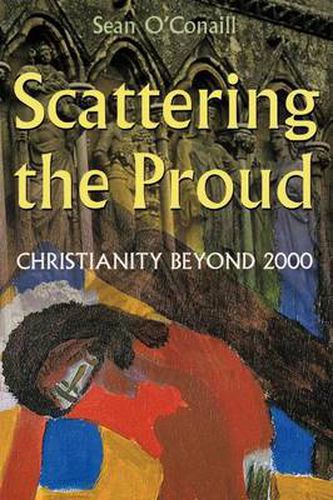Readings Newsletter
Become a Readings Member to make your shopping experience even easier.
Sign in or sign up for free!
You’re not far away from qualifying for FREE standard shipping within Australia
You’ve qualified for FREE standard shipping within Australia
The cart is loading…






This title is printed to order. This book may have been self-published. If so, we cannot guarantee the quality of the content. In the main most books will have gone through the editing process however some may not. We therefore suggest that you be aware of this before ordering this book. If in doubt check either the author or publisher’s details as we are unable to accept any returns unless they are faulty. Please contact us if you have any questions.
In this radically original and optimistic reflection on the future of Christianity in the Western world, Sean O'Conaill starts from the conviction that the life, ministry, and death of Jesus of Nazareth were a deliberate reversal of the human “heroic” journey to adulation and influence, which has caused violence, tyranny, and injustice in all epochs. He did not identify with, or seek to emulate, the powerful and the influential; he sought out the outcasts and taught that every person was of equal worth in the eyes of God. In the end, he exalted the person who was most despised-the victim-by accepting an ignominious death. O'Conaill argues that, even since the earliest times, Jesus’s followers have been tempted to rejoin the “upward journey” toward power and influence-a journey which inevitably creates “pyramids of esteem” or “hierarchies of respect,” which glorify individuals and elites at the expense of majorities. The development of the relationship between Christianity and the political establishment, in the fourth century, soon associated Christ himself with coercion and led, in the end, to the schisms between East and West, Protestant and Catholic, and between Christianity and liberal secularism. It is also at the root of the “silent schism” within the Catholic church today. The future of Christianity then lies in its willingness to abandon this “upward journey” and to return to the essence of the gospel message, not only institutionally, but personally in the lives of all Christians. This return to a countercultural stance will aim to raise the disadvantaged and to secure the future of the global family and its environment.
$9.00 standard shipping within Australia
FREE standard shipping within Australia for orders over $100.00
Express & International shipping calculated at checkout
Stock availability can be subject to change without notice. We recommend calling the shop or contacting our online team to check availability of low stock items. Please see our Shopping Online page for more details.
This title is printed to order. This book may have been self-published. If so, we cannot guarantee the quality of the content. In the main most books will have gone through the editing process however some may not. We therefore suggest that you be aware of this before ordering this book. If in doubt check either the author or publisher’s details as we are unable to accept any returns unless they are faulty. Please contact us if you have any questions.
In this radically original and optimistic reflection on the future of Christianity in the Western world, Sean O'Conaill starts from the conviction that the life, ministry, and death of Jesus of Nazareth were a deliberate reversal of the human “heroic” journey to adulation and influence, which has caused violence, tyranny, and injustice in all epochs. He did not identify with, or seek to emulate, the powerful and the influential; he sought out the outcasts and taught that every person was of equal worth in the eyes of God. In the end, he exalted the person who was most despised-the victim-by accepting an ignominious death. O'Conaill argues that, even since the earliest times, Jesus’s followers have been tempted to rejoin the “upward journey” toward power and influence-a journey which inevitably creates “pyramids of esteem” or “hierarchies of respect,” which glorify individuals and elites at the expense of majorities. The development of the relationship between Christianity and the political establishment, in the fourth century, soon associated Christ himself with coercion and led, in the end, to the schisms between East and West, Protestant and Catholic, and between Christianity and liberal secularism. It is also at the root of the “silent schism” within the Catholic church today. The future of Christianity then lies in its willingness to abandon this “upward journey” and to return to the essence of the gospel message, not only institutionally, but personally in the lives of all Christians. This return to a countercultural stance will aim to raise the disadvantaged and to secure the future of the global family and its environment.